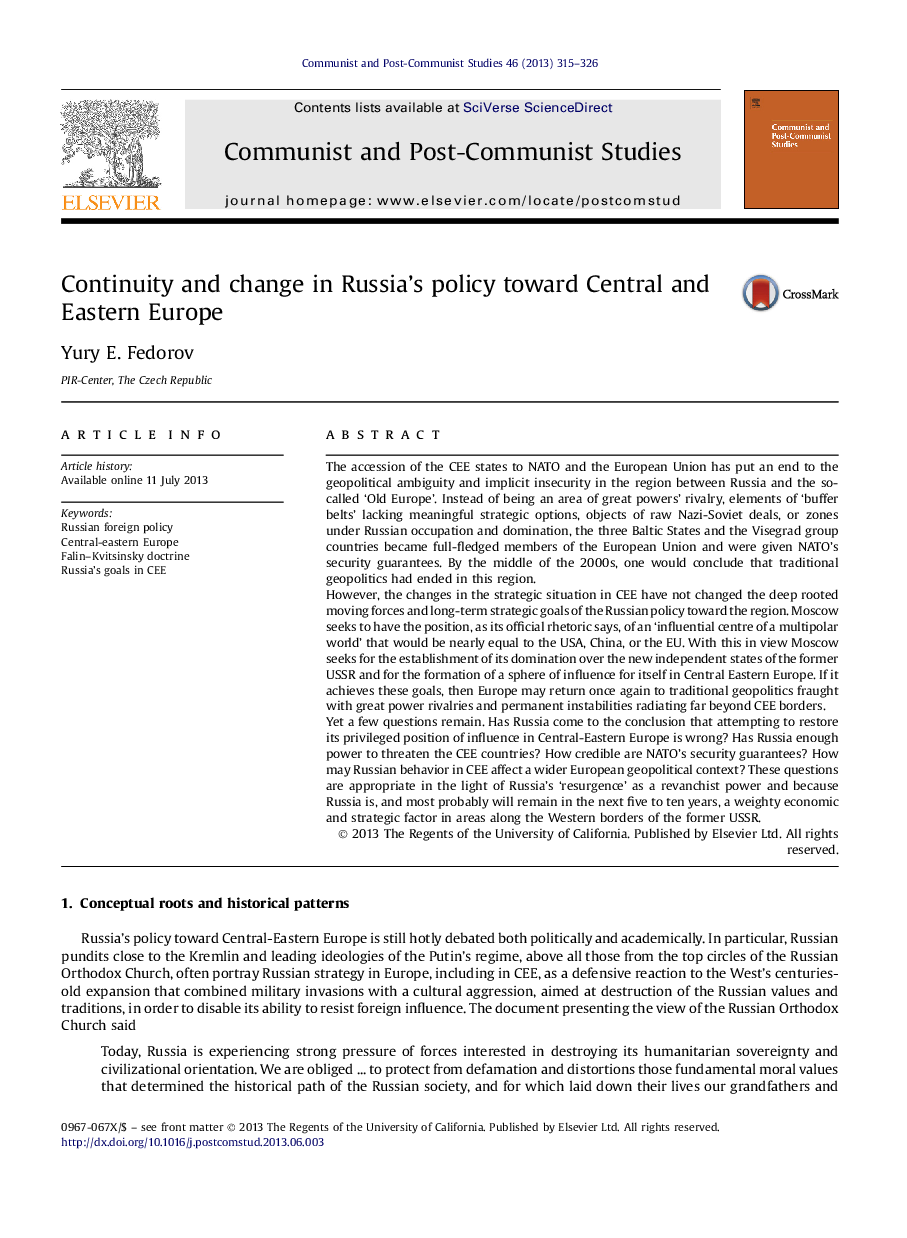| کد مقاله | کد نشریه | سال انتشار | مقاله انگلیسی | نسخه تمام متن |
|---|---|---|---|---|
| 1046481 | 945080 | 2013 | 12 صفحه PDF | دانلود رایگان |
The accession of the CEE states to NATO and the European Union has put an end to the geopolitical ambiguity and implicit insecurity in the region between Russia and the so-called ‘Old Europe’. Instead of being an area of great powers' rivalry, elements of ‘buffer belts’ lacking meaningful strategic options, objects of raw Nazi-Soviet deals, or zones under Russian occupation and domination, the three Baltic States and the Visegrad group countries became full-fledged members of the European Union and were given NATO's security guarantees. By the middle of the 2000s, one would conclude that traditional geopolitics had ended in this region.However, the changes in the strategic situation in CEE have not changed the deep rooted moving forces and long-term strategic goals of the Russian policy toward the region. Moscow seeks to have the position, as its official rhetoric says, of an ‘influential centre of a multipolar world’ that would be nearly equal to the USA, China, or the EU. With this in view Moscow seeks for the establishment of its domination over the new independent states of the former USSR and for the formation of a sphere of influence for itself in Central Eastern Europe. If it achieves these goals, then Europe may return once again to traditional geopolitics fraught with great power rivalries and permanent instabilities radiating far beyond CEE borders.Yet a few questions remain. Has Russia come to the conclusion that attempting to restore its privileged position of influence in Central-Eastern Europe is wrong? Has Russia enough power to threaten the CEE countries? How credible are NATO's security guarantees? How may Russian behavior in CEE affect a wider European geopolitical context? These questions are appropriate in the light of Russia's ‘resurgence’ as a revanchist power and because Russia is, and most probably will remain in the next five to ten years, a weighty economic and strategic factor in areas along the Western borders of the former USSR.
Journal: Communist and Post-Communist Studies - Volume 46, Issue 3, September 2013, Pages 315–326
